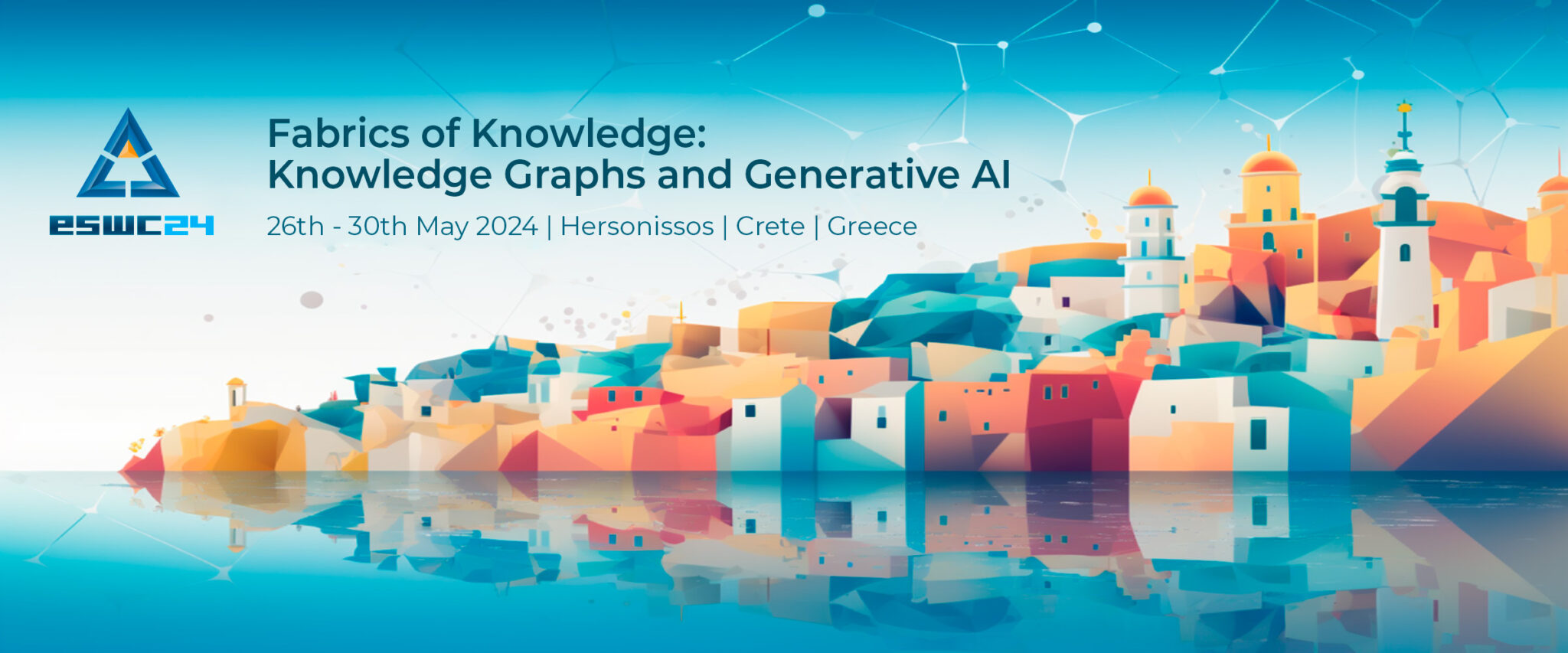Conference summer season has started! Polifonia's contributions to academia
With a strong base in academia, the Polifonia team looks forward to the conference season every year. One of the highlights is the Extended Semantic Web Conference. In this article, a brief review of our participation in this conference and update on our paper output.

With a strong base in academia, the Polifonia team looks forward to the conference season every year. One of the highlights is the Extended Semantic Web Conference. In this article, a brief review of our participation in this conference and update on our paper output.
Extended Semantic Web Conference
ESWC is a major venue for discussing the latest scientific results and technology innovations around semantic technologies. Held in Hersonissos, this year’s theme touched upon matters Polifonia feels at home with: ‘Fabrics of Knowledge: Knowledge Graphs and Generative AI’. The King’s College and Open University researchers involved with Polifonia have entered contributions this year.

For the Resource track the OU team presents the Musical Meetups Knowledge Graph (MMKG), a collection of evidence of historical collaborations between personalities relevant to the music history domain. They illustrate how they built the KG with a hybrid methodology that, combining knowledge engineering with natural language processing, including the use of Large Language Models (LLM), machine learning, and other techniques, identifies the constituent elements of a historical meetup. More info can be found in their paper Musical Meetups Knowledge Graph (MMKG): a network of evidence for historical social network analysis (by Alba Morales Tirado, Jason Carvalho, Marco Ratta, Paul Mulholland, Helen Barlow, Trevor Herbert, Chukwudi Uwasomba and Enrico Daga) and in the Ecosystem environment on the pilot MEETUPS.
The KCL team brings OntoChat to the conference, which builds on the Music Meta Ontology that was developed within Polifonia. OntoChat is a framework for conversational ontology engineering that supports requirement elicitation, analysis, and testing. By interacting with a conversational agent, users can steer the creation of user stories and the extraction of competency questions, while receiving computational support to analyse the overall requirements and test early versions of the resulting ontologies. Read the paper here: OntoChat: a Framework for Conversational Ontology Engineering using Language Models (by Bohui Zhang, Valentina Anita Carriero, Katrin Schreiberhuber, Stefani Tsaneva, Lucia Sanchez Gonzalez, Jongmo Kim and Jacopo de Berardinis).
Jongmo and Jacopo also organised the GeNeSy, first International Workshop on Generative Neuro-Symbolic AI at ESWC, in collaboration with Nitisha Jain (KCL) and Filip Ilievski (Vrije Universiteit). It brings ideas from NeSy and GenAI together, enabling discussions between these two communities and facilitating impact on the future development of AI. The key notes of this workshop cane be watched here.
More recent publications and presentations
In July the University of Galway team will present two papers at the Sound & Music Computing Conference in Porto. The first one taps into Patterns UI, an Interactive Tool for Music Exploration (by Rory Sweeney, James McDermott, Pushkar Jajoria, Danny Diamond and Mathieu d’Aquin). We previously featured this user face on the website. You can also watch the tutorial video to learn more about this tool. The second paper, work by James McDermott and Pushkar Jajoria, is about the Prevalence Of Tresillo Rhythm In Contemporary Popular Music. Tresillo is a Caribbean rhythm that we’ve been hearing more in pop songs in the last decade. Learn more about this rhythm it the follow video.
Where to find all the papers released by Polifonia researchers
As part of the completion of the project, the research and dissemination team has recently updated all publications on Zenodo and the Dissemination page on the website. Here you can find publications in papers and non-academic media, conference papers and public deliverables.










